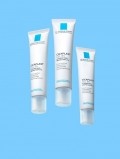Salicin acts on skin genes to promote more youthful expression - study
The research, recently published in the International Journal of Cosmetic Science, investigated the effect of salicin on a number of genes that had been chosen for their role in skin ageing.
The scientists, who work for Utah-based NuSkin enterprises, identified what they refer to as ‘youth gene clusters’ – genes that code for proteins related to the skin ageing process.
Such proteins included those associated with hyaluronic acid, which plays a role in skin hydration, those associated with skin pigmentation, as well as genes that affect the production and maintenance of structural proteins such as collagen.
Gene expression changes with age
As the body ages, the expression of many of these genes will change, explained the researchers, which contributes to skin ageing.
According to the team, in vitro tests suggest that salicin can help maintain the youthful expression profile of these genes.
Results from the in vitro tests suggest that salicin upregulates HAS1 and HAS2, both involved in the synthesis of hyaluronic acid, as well as downregulating genes that are responsible for the degradation of hyaluronic acid, the authors claimed.
In addition, genes that code for collagen were upregulated as were those known to regulate collagen assembly and cross linking. However, the gene MMP9, which is know to be involved in the degradation of collagen, according to the researchers, was down regulated.
In vivo test on salicin
Late last year the company also published a study investigating the in vivo effects of a topical product containing salicin, and a number of other proprietary anti-ageing actives, on the visible signs of skin ageing.
According to research scientist at NuSkin, Remona Gopaul, the in vivo study showed significant improvements in a number of criteria.
“The clinical investigator found statistically significant improvements against baseline in wrinkles, tactile roughness, pore size, radiance, and overall appearance after one week, and statistically significant improvements against baseline in mottled pigmentation, global firmness, and jaw-line contour after four weeks,” she told CosmeticsDesign-Europe.com.
NuSkin has incorporated salicin into its latest anti-ageing products, she added.
Source: International Journal of Cosmetic Science
doi: 10.1111/j.1468-2494.2011.00645.x
Salicin regulated the expression of functional ‘youth gene clusters’ to reflect a more youthful gene expression profile
R. Gopaul, H.E. Knaggs, J. Lephart
















